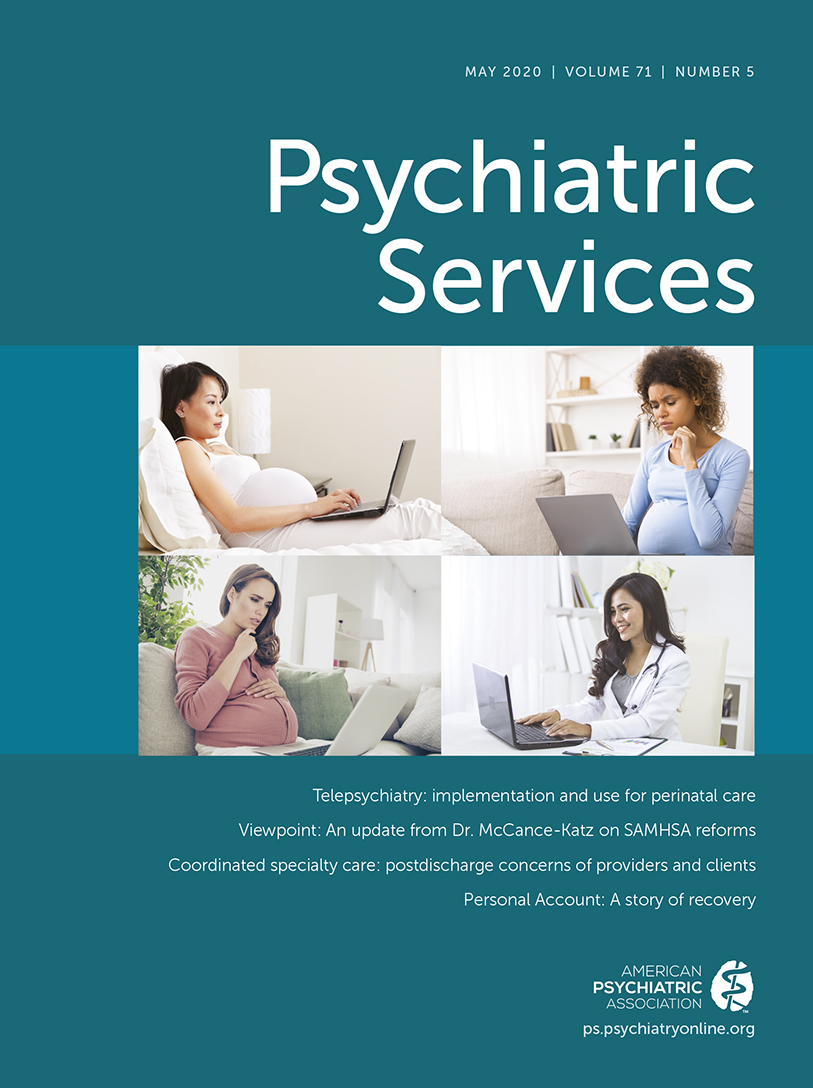Reply to Peterson-Dana and Palanci
IN REPLY: We sincerely appreciate the enriching dialogue with Peterson-Dana and Palanci (1) that unfolded after an Open Forum on the use of financial incentives to enhance medication adherence in severe mental illness (2).
We appreciate the points of agreement and common goals and the exploration of the best possible strategy to generate better outcomes for our patients. We acknowledge the respectfully outlined differences, because they allow further discussion and provide an opportunity for clarification.
Two main concerns are raised in this piece by Peterson-Dana and Palanci (1).
On the one hand, the authors insist on the coercive nature of financial incentives to help enhance medication adherence, stating that “individuals likely experience informal coercion when financially incentivized to take medications” and express concerns that “this practice may also undermine patient autonomy.” Further, the authors state that “when [psychiatrists] incentivize one treatment over another, they exercise power and coercive influence and may close off opportunities for an empowering process of dialogue and shared decision making.”
We disagree. First, there is a substantial conceptual difference between coercion and incentivization, which we discuss in detail elsewhere (3). This difference becomes even more evident when the behavior that is being incentivized (i.e., adherence to a needed, agreed-upon, and ultimately prescribed treatment) is clearly aligned with both patient and doctor long-term goals after careful evaluation of the risks and benefits of nonadherence. Second, the patient’s autonomy is not undermined, or at least not more than when a doctor offers a given treatment. Full information about the intervention should be given, including a weighted discussion about its advantages and disadvantages, so doctors do not “close off opportunities for an empowering process of dialogue and shared decision making.”
Hence, we believe the key issue concerns the second point the authors raise, that is, “the role of psychiatric medication.” The authors “wonder if the routine use of maintenance medications in psychiatry needs more research” and state that “a central focus on medication compliance neglects a more holistic and empowering approach to mental health care,” citing “a systematic review examining the risk factors for involuntary hospitalization [that] found that ‘poor adherence to treatment and poor compliance with medication before admission were associated with involuntary rather than voluntary admission’” (1).
This point underscores precisely why we are so concerned about adherence. When individuals have difficulty taking medication, they are in fact more likely to have relapses, which are sometimes so severe as to warrant involuntary hospitalization. A seminal meta-analysis based on a very large series of studies (4) found a number needed to treat of three for antipsychotic medication versus placebo in the prevention of relapse, which is one of the most powerful effects in all of medicine.
Certainly, dosages must be optimized and can be reduced for some patients, but we and others have done extensive research on very-low-dose treatment, and the results are not favorable (5). Various incentives are often used to develop healthier habits, such as taking prescribed medications. For patients with an illness shown to benefit from medication, such interventions merit further study.
1 : Incentivizing is not coercing: a reply. Psychiatr Serv 2020; 71:526–527Abstract, Google Scholar
2 : Use of behavioral economics to improve medication adherence in severe mental illness. Psychiatr Serv 2019; 70:955–957Link, Google Scholar
3 : Incentivizing is not coercing: a commentary. Psychiatr Serv 2020; 71:301–302. doi: 10.1176/appi.ps.201900543Link, Google Scholar
4 : Antipsychotic drugs versus placebo for relapse prevention in schizophrenia: a systematic review and meta-analysis. Lancet 2012; 379:2063–2071Crossref, Medline, Google Scholar
5 : Low dose vs standard dose of antipsychotics for relapse prevention in schizophrenia: meta-analysis. Schizophr Bull 2011; 37:788–799Crossref, Medline, Google Scholar



